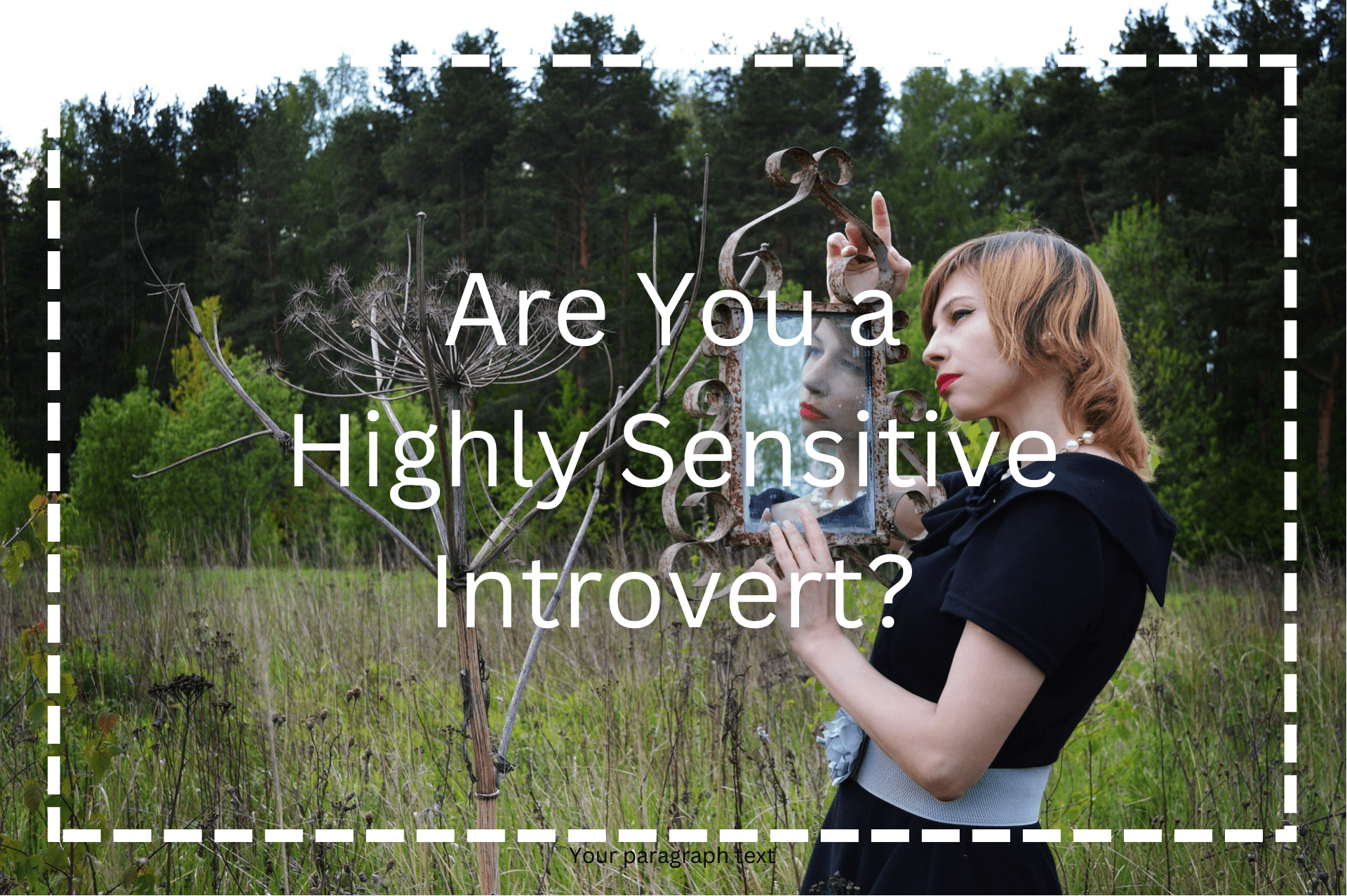Are You A Highly Sensitive Introvert? The Difference Between Introverts and Highly Sensitive People (HSPs)
Are you highly sensitive or an introvert?
For centuries, we humans have labeled ourselves in a variety of ways. We talk about ourselves in terms of gender, race, religion, culture, and even our personalities.
But what does it mean to be highly sensitive or an introvert? (Or an introvert and a highly sensitive person?)
As it turns out, there is actually a lot of overlap between these two personality traits. Let’s dive into the details and explore what it means to be both highly sensitive and an introvert.
Affiliate Disclaimer: If you purchase items using the links in this article, I receive a small commission at no extra cost to you. You get a great product, and this helps run my site and keeps me in business! Win-win for both of us!
What Does It Mean to Be a Highly Sensitive Person (HSP)?
High sensitivity is a personality trait, also known as sensory processing sensitivity, that affects around 15-20 percent of the population. Approximately 70 percent of HSPs are also introverts. Highly sensitive people are more aware of their environment than others; they pick up on subtle changes in their surroundings more easily and are very emotionally attuned to other people’s feelings. Some HSPs even report that they “absorb” emotions from the people around them.
This can often lead to feeling fatigued in larger crowds because they become overwhelmed or overstimulated easily. Many HSPs also tend to take longer than usual to make decisions because they need time to process all the information that comes their way.
According to Dr. Elaine Aron, a leading expert on the topic, many highly sensitive people simply have a genetic trait that makes them process things deeply, rather than just brushing it off like non-sensitive people do. HSPs are more aware of subtleties in their environment as well as their own bodies: bright lights, too much noise, too much stimulation, the environment being too hot or too cold, all can lead to feeling drained and worn out after a short period of time.
Sometimes, other people don’t understand that all of this sensitivity comes at a cost. Just because you’re feeling like there’s so much going on that you can’t keep up, doesn’t necessarily mean that HSPs don’t like to be around people. To put it frankly, when you absorb other people’s emotions as part of that external stimulus, sometimes the vibes get overwhelming.
You simply need more quiet time to calm your nerves after spending an extended period of time trying to fit in with everyone around you and find the right things to do or say so that others’ feelings don’t get too out of hand and overwhelm you.
(And let’s not talk about how noisy other people are, am I right?)
What Does It Mean to Be an Introvert?
Introverts are people who prefer solitary activities over socializing and feel more energized after spending time alone versus spending time with others. Additionally, introverts enjoy deep conversations with close friends, but often find themselves getting drained after spending prolonged periods of time in social situations. As an introvert, you may find small talk draining, fast-paced talk and conversation may be overstimulating, and after a while, you may find yourself getting easily distracted by background noise, your own thoughts, or even just the dog coming up to you and wanting attention.
While your extroverted friends may be happy making many shallow friendships, you, my introverted friend, most likely thrive on one-on-one time with a close friend that you can connect deeply with. Even then, because introverts get their energy by spending time alone to process information and reflect on their own thoughts, you probably tend to get the urge to escape for some time away sooner rather than later- and regret it if you don’t follow through on that urge.
Temperament plays a role in personality type, too. There is an element of high sensory processing in most introverts- studies show that introverts are generally more sensitive to dopamine than extroverts are, meaning that you will find yourself tiring out before your extroverted friends do- but it’s not always that you’re shy or reserved.
It doesn’t mean that you don’t like being around people—it just means that you need time alone in order to recharge and feel at peace again, afterward.
What Does It Mean to Be a Highly Sensitive Introvert in This Noisy, Extroverted World?
If you can relate to both highly sensitive and introverted traits, then you might be what people call a “highly sensitive introvert.”
Highly sensitive introverts may have difficulty in some social settings due to their heightened awareness of emotions and strong need for alone time. They tend to prefer meaningful conversations with close friends over crowded gatherings, and they may find themselves getting overwhelmed in new and unfamiliar environments, which stimulate their senses more.
At the same time, highly sensitive introverts are incredibly perceptive and emotionally intelligent individuals who can bring a lot to any conversation. They often have a deep understanding of human behavior and interpersonal dynamics due to their intense emotional awareness, and may be able to pick up on subtle cues that others miss.
Highly sensitive introverts generally require a lot of alone time in order to feel recharged, but they can also be incredibly compassionate and empathetic towards the people around them. It’s important for highly sensitive introverts to practice self-care and manage their social energy wisely so that they can fully enjoy life without getting overwhelmed.
Being a highly sensitive introvert is nothing to be ashamed of—it just means that you need to pay extra attention to your emotional needs in order to stay healthy and balanced.
Reading self-help books might help if you’re feeling like you don’t fit in.
(The Highly Sensitive Person by psychologist Dr. Elaine Aron, The 16 Personalities by Dr. A. J. Drenth, and Gifts Differing by Isabel Myers-Briggs are three excellent resources for finding out more about your personality traits.)
The Difference Between Introverts and Highly Sensitive People (HSPs) – and a Lot of Overlap
Although high sensitivity and introversion share many similarities, there are some key differences between them as well. HSPs can identify as introverts and extroverts alike, and while both traits involve an intense awareness of one’s environment, highly sensitive people may actually enjoy being around others while introverts may not necessarily get as much out of social interactions as they do from being alone.
Additionally, while highly sensitive individuals may take longer than usual to make decisions due to their heightened awareness and emotional intelligence, introverts may simply have difficulty making decisions in general due to their tendency toward rumination rather than impulsivity.
Both introverts and HSPs may feel undue pressure to say yes to situations they’re not comfortable with, just to preserve their comparatively limited energy.
How About You?
Are you highly sensitive or an introvert?
If you’re constantly picking up on small changes in your environment or find yourself feeling overwhelmed when surrounded by large groups of people, chances are you’re highly sensitive person.
On the other hand, if you feel drained by long periods of socializing but re-energize when alone, then you likely identify as an introvert.
Regardless of which trait applies to you (or both!), while there is no “cure” for either of these, understanding your personality can help explain why certain situations make you feel the way you do—and knowledge is power!


